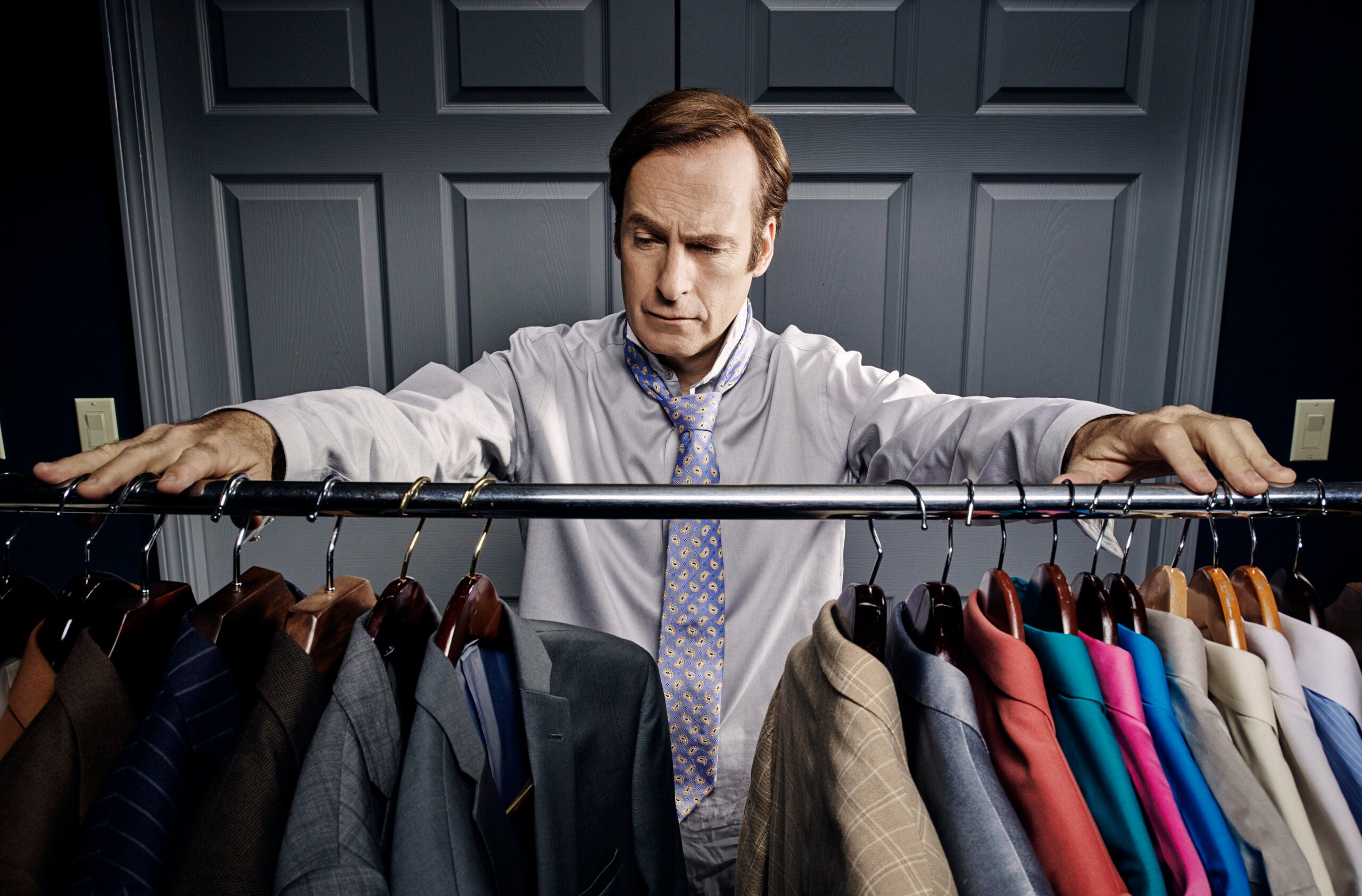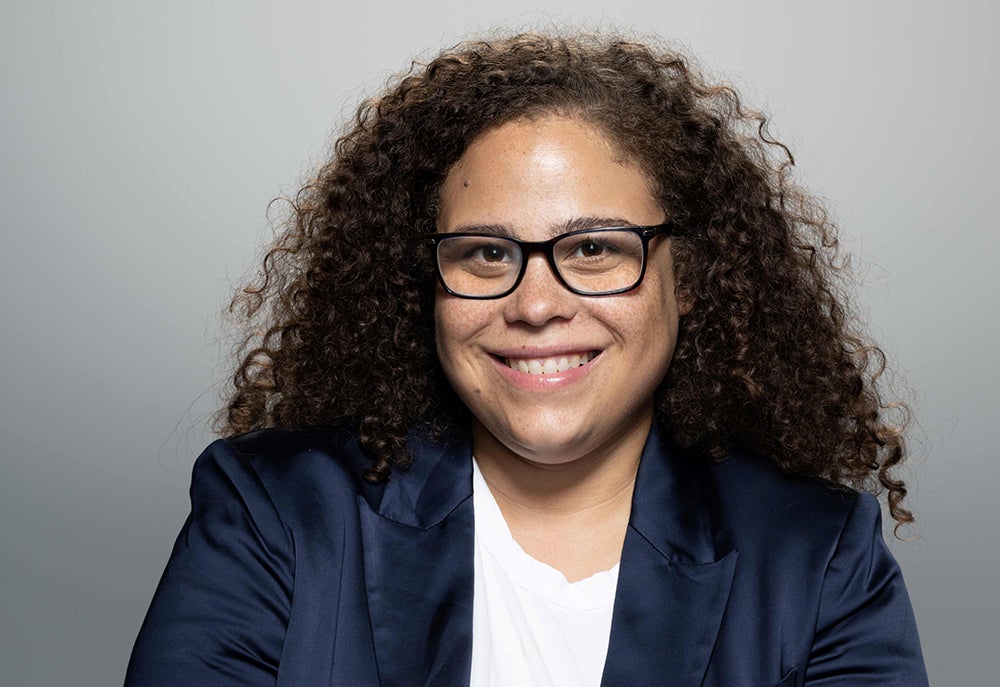Alan Sepinwall is a New York Times bestselling author and chief television critic for Rolling Stone.
The critically acclaimed prequel to the critically acclaimed “Breaking Bad” — “Better Call Saul” — is celebrating its 10th anniversary. Sepinwall takes a look back at the show’s impressive run in his latest book, “Saul Goodman v. Jimmy McGill: The Complete Critical Companion to Better Call Saul.”
Alan recently talked with WPR’s “BETA” host Doug Gordon about his favorite moments from the series, the winding road of Jimmy McGill’s backstory, and how Saul Goodman’s character may have never existed if “Breaking Bad” creator Vince Gilligan hadn’t gone to bat for him early on with network executives.
News with a little more humanity
WPR’s “Wisconsin Today” newsletter keeps you connected to the state you love without feeling overwhelmed. No paywall. No agenda. No corporate filter.
The following interview has been edited for clarity and brevity.
Alan Sepinwall: Once Vince won that fight and they decided to do it, they knew that they were committed to Saul for a while because, among other things, they built him an office.
And on a show with a relatively modest budget like “Breaking Bad,” you’re not going to go to that expense for a character who’s only going to be in one episode.
Doug Gordon: So how would you describe Saul as a character on “Breaking Bad?“
AS: Saul on “Breaking Bad” was primarily comic relief and a professional aide for Walter White. He helped him figure out how to straighten up his business, but he was not particularly deep. He did not seem conflicted in any way about what he did. He just always got right to the heart of the matter. If he felt the solution to a problem was to murder someone, he would suggest that.
So, when it came time for them to announce that they wanted to do a spinoff about him, I was a little surprised, because as much as I enjoyed that character and as much I enjoyed Bob Odenkirk playing him, he did not seem built to support an entire series all on his own.
DG: You said that there was no inner conflict. And you’ve got to have inner conflict, don’t you?
AS: You do. You have to have some sort of character arc and it didn’t seem as if there was one. And obviously, Vince and Peter Gould are smarter writers than I am, and they figured out what it was. Which is, well, how does a person who at one point had a soul and had inner conflict get to become this completely soulless amoral human being?
DG: Very well said. And as you mentioned, Bob Odenkirk was cast to play Saul. What effect did Odenkirk have on Saul’s story arc and his popularity as a character?
AS: Bob is a really talented comic actor. He had no dramatic training of any sort, as far as he and I have discussed over the years. So it’s really remarkable what he was able to do on “Better Call Saul.”
But I think he had the same reservations that I did about doing the spinoff. He said, “Guys, this has been a fun job for me, but I don’t really think that there’s enough of this character for me to want to keep playing him for years and years.”
And so, in part to appease Bob and get him to want to do it, Vince and Peter had to really work very hard to deepen the character and make him someone complex enough for their actor to want to play him.
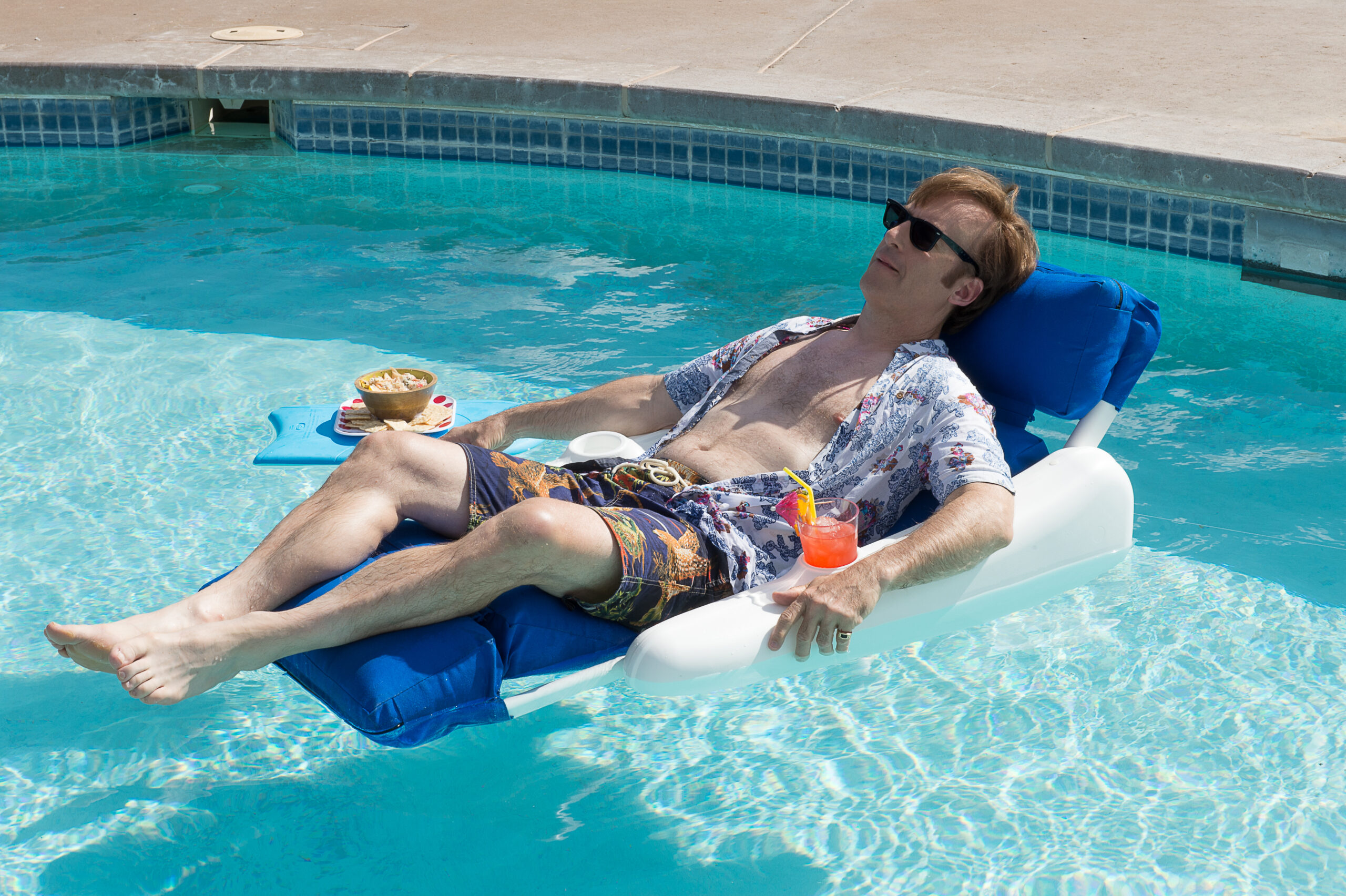
DG: At what point during the making of “Breaking Bad” did a Saul spinoff become something that was considered?
AS: Bob tells the story that a member of the crew joked about it on the very first day he was there. He said, “Can you make sure that I still have a job when they do the spinoff?” And then it became a running gag in the writers room where someone would pitch an idea and someone else would say, “No, no, let’s save that for the Saul spinoff.” And they didn’t actually mean it. It was more of them acknowledging a Saul spinoff is a stupid idea.
And at a certain point, they realized that they wanted to do it. I think, in part, because nobody was quite ready to leave that world yet, or in certain cases, to leave working with these people yet.
DG: “Better Call Saul” is written mostly as a prequel to “Breaking Bad” and Odenkirk’s character goes by the name of Jimmy McGill. Michael McKean portrays Jimmy’s older brother, Chuck McGill, and the two characters have a fascinating, complicated, fractured relationship which comes to a head in season three’s finale, “Lantern.” Can you tell us about this episode?
AS: “Lantern” is so good and it’s so powerful. So the idea between the two brothers is that Chuck is the “good” brother and Jimmy is the “bad” brother. And Chuck has an esteemed legal career and does everything the right way and has the respect of civilized society. And Jimmy has always been the sketchy con man who gets by just on guile and charm. And Chuck resents the fact that everybody loves the brother who does things the wrong way much more than they do him. And Jimmy decides to become a lawyer in part because he thinks, oh, this will finally win the respect of my brother.
And it doesn’t do that at all. Chuck is aghast at the idea of Jimmy joining his hallowed profession. And so things build and build and they come into a rivalry.
And at the same time, Chuck is also dealing with a mental illness where he has become convinced that he is allergic to electromagnetism. If he’s around any kind of electrical power, he’s going to have an episode of some sort. And so this all comes to a head. He seems to finally be getting better. The two brothers have a big public clash earlier in the season in which Jimmy publicly humiliates Chuck in order to save his own career.
And then later, Jimmy petulantly, just out of spite, gets Chuck’s malpractice insurance revoked, which means Chuck is never going to be able to practice law again. And that’s all that Chuck has ever cared about. And it sends him into this spiral of mental illness. And it’s among the more harrowing and ultimately tragic episodes of TV that I can think of.
In the following season premiere, Howard, Chuck’s partner, comes to Jimmy and he is feeling guilty over what he feels is his fault in this. He does not know that Jimmy is the one who got the malpractice insurance revoked.
Jimmy originally thought that the problem was this conflict they’d had at the Bar Association hearing. And he could justify that as, “That was self -defense. I had to save my career, so I had to embarrass my brother to do that.”
Whereas the thing with the malpractice insurance, there’s no excuse from it. Jimmy gets no benefit from it whatsoever, except the satisfaction of sticking it to his brother.
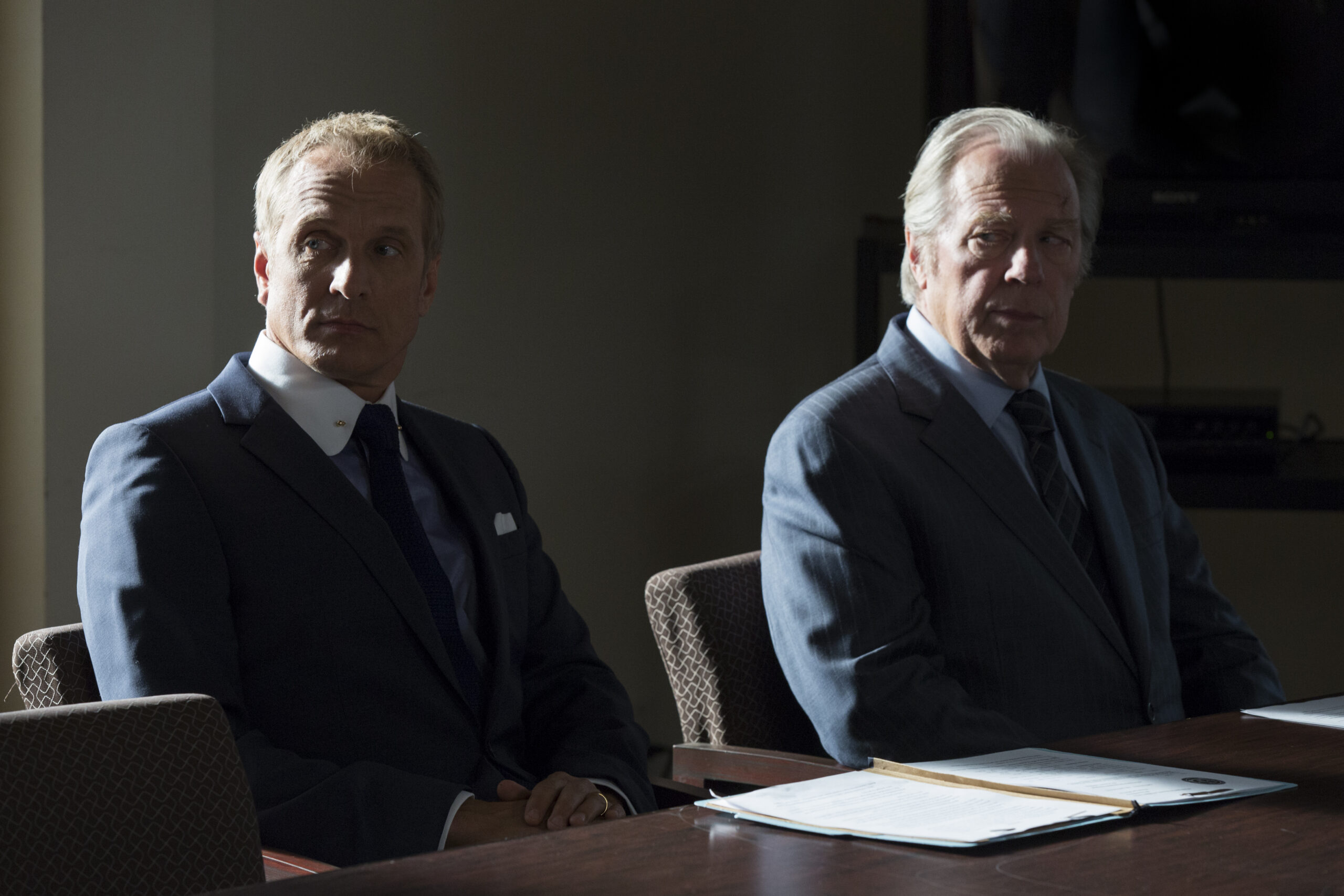
And when he realizes that is what ultimately leads Chuck to kill himself, he can either deal with the blame for that and deal with the guilt for that, or he can shrug it aside and say, you know what? I don’t care.
And he shrugs it aside and goes to make something in the kitchen and he whistles while he works. And right there, that’s the first truly Saul Goodman reaction that I think we see him have.
DG: Rhea Seehorn plays Kim Wexler, an ambitious lawyer who works as an intern at Chuck’s law firm, Hamlin, Hamlin & McGill. Can you tell us about Kim and why she joins forces with Jimmy?
AS: There’s some implied backstory between them. When we see them in the first episode, they share a smoke in the parking deck at HHM. And it’s very clear this is not the first time this has happened. There’s even some dispute among the writing staff over whether they’d had a relationship before, or they were just friends and colleagues.
In a very early episode of the show, Jimmy does this stunt involving a billboard and pretending to save a falling man. Everyone’s watching it on the news and Howard is upset and everyone just is offended by it, the camera cuts to Kim and she lets out a little smile. She’s charmed by what Jimmy does. She enjoys this con man side of his. And she gets sucked into that.
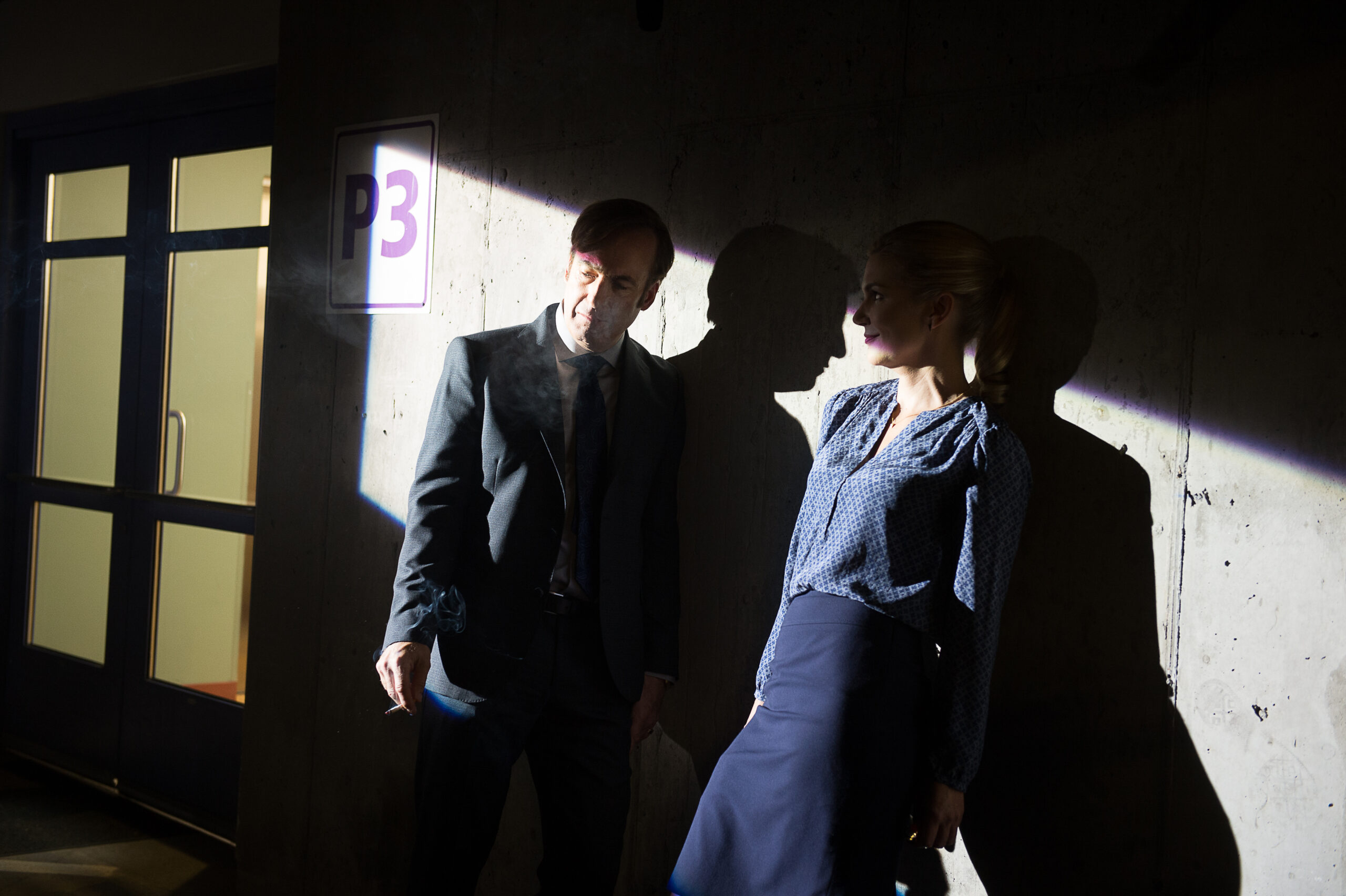
He takes her along to run a hustle on a guy about tequila. And suddenly she not only enjoys it, she turns out to be better at it than he is. And they’re very attracted to one another, but also she’s attracted to the stuff he does when he’s “Slipping Jimmy McGill.” And that ultimately does not end well for anybody.
The writers didn’t really know what her story was going to be or how much they were going to use her. They just kept watching her and seeing the interesting choices she was making, like that smile I referenced before. And they decided to lean into it.
They originally thought that Jimmy was going to become Saul Goodman by the end of the first season. And they reconvened the writers room for the second. And they realized that the thing Jimmy does at the end of the first year would basically be messing with Kim and betraying Kim. And they didn’t want him to do that.
And so suddenly, they take him on this completely different path in terms of his career and his soul and everything else. And that’s all because of Kim as a character. That’s how much they had come to like her by that point. And that’s how much the audience had. So as a result, he does not become Saul Goodman until the last four episodes of the entire series. And that’s all really a testament to that character she created.
DG: There were two different shows being made. One was set in lawyer land, the other was in cartel country. How challenging was it for the cast, the writers and crew to manage these very different overlapping realities?
AS: Well, that’s another testament to the fact that they don’t plan anything. I think they thought that Jimmy/Saul and Mike [Ehrmantraut, played by Jonathan Banks] would be working together very closely by midway through that first season. Instead, because they keep pushing off the moment where he truly becomes Saul, they didn’t really feel like Jimmy McGill as Jimmy should be working much with these kinds of characters. So they had to set up this whole parallel arc with Mike.
And it was challenging in some ways. But in other ways, it allowed them to have their cake and eat it, too. They’re getting to do all of the cartel stuff and all the “Breaking Bad” backstory and fan service for the people who really wanted that. And yet, they’re still able to take their time with the Jimmy storyline and really dig in on him and Chuck and Kim.
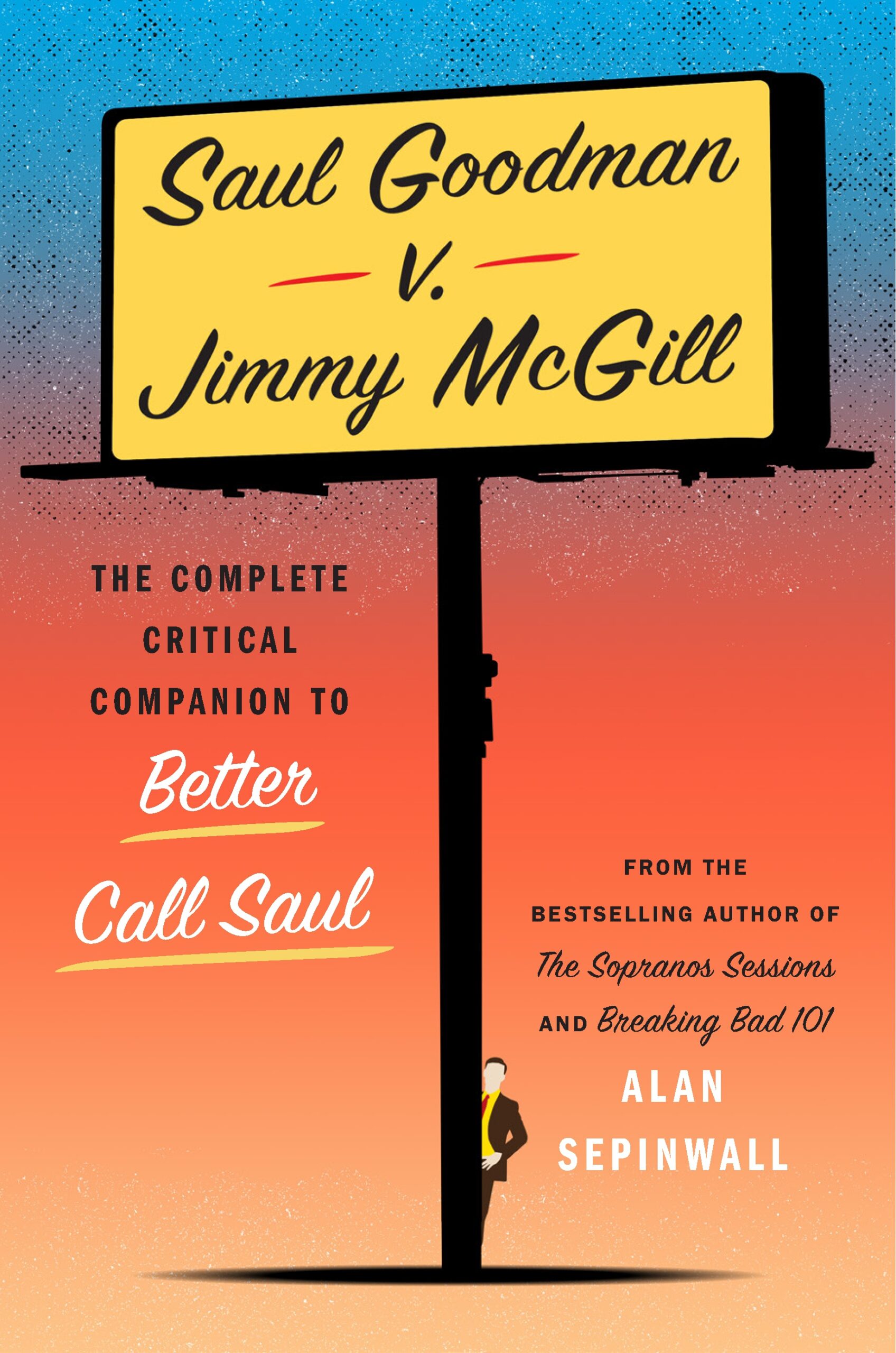
DG: You said the lawyer parts are more enjoyable than the cartel parts. I’m wondering why that is? Is it just the drama of courtroom confrontations or is there more to it than that?
AS: I think I enjoy the lawyer stuff more because it’s not really hemmed in by our knowledge of what happens on “Breaking Bad” in the way the cartel stuff is. On the cartel stuff, you’ll have a scene where there are seven characters in a desert. And you know that six of them are still alive when “Breaking Bad” happens and one of them isn’t.
And so therefore, you know what’s going to happen and it’s still a really good scene, but it doesn’t necessarily have the same weight. Whereas you don’t know what’s going to happen to Kim Wexler. You don’t know what’s going to happen to Howard, to Chuck, to some of these other characters. And beyond that, you’re spending more time with Jimmy, who turns out to be this sort of startlingly multifaceted character. And you’re spending a lot of time with Kim, who is just ultimately the most universally liked person, I think, among the fan base on either show. So the character arcs are much grander and bigger on the lawyer side, in addition to everything else.

